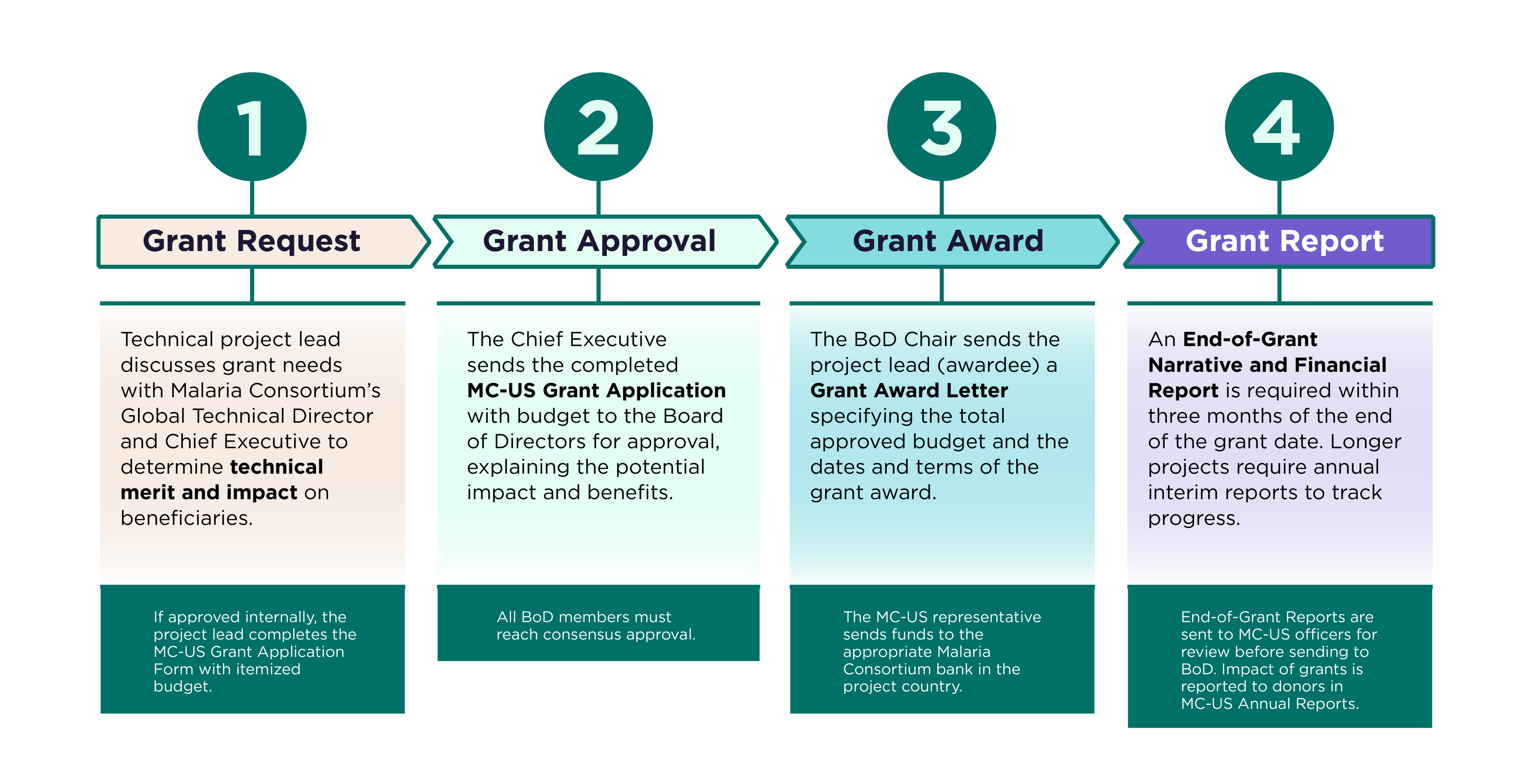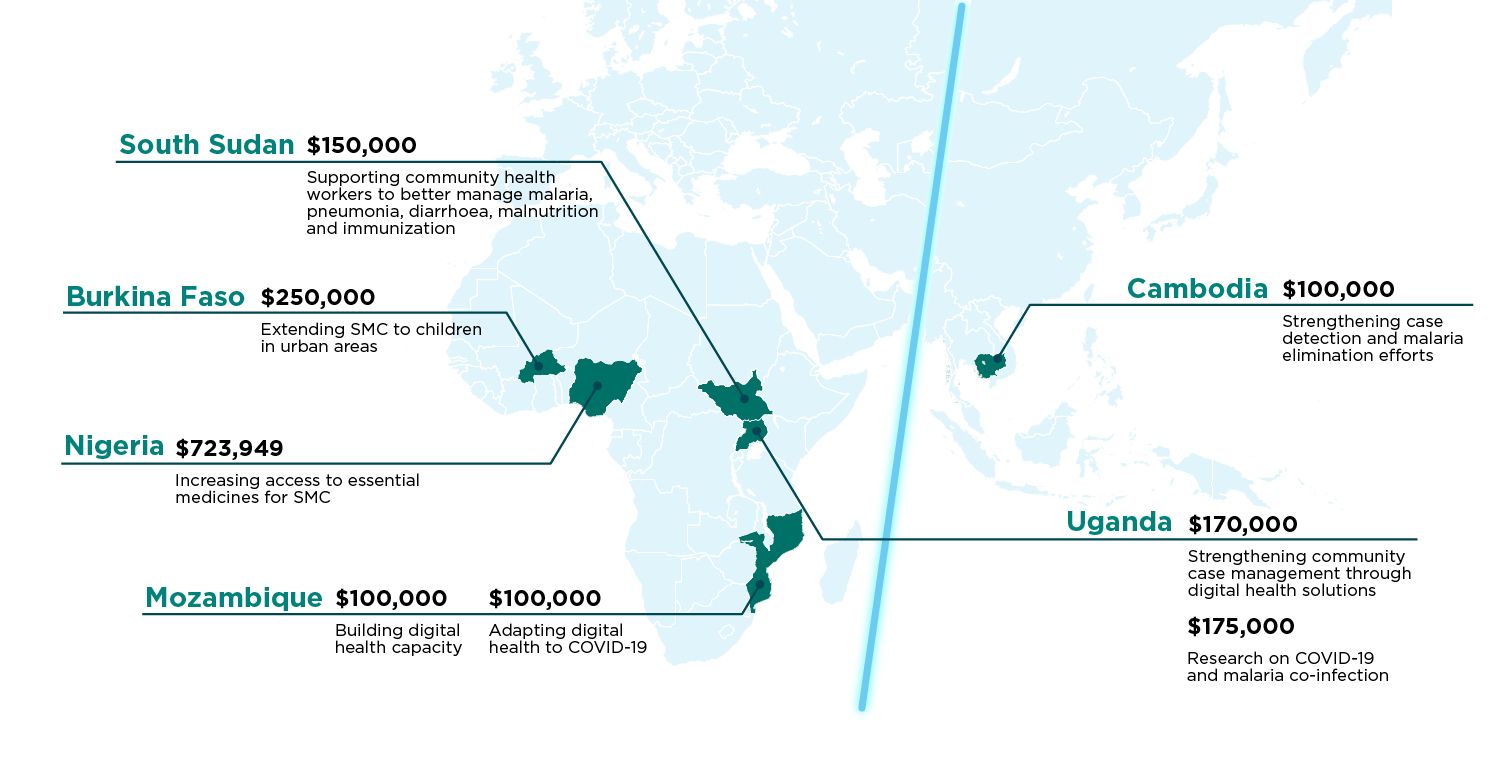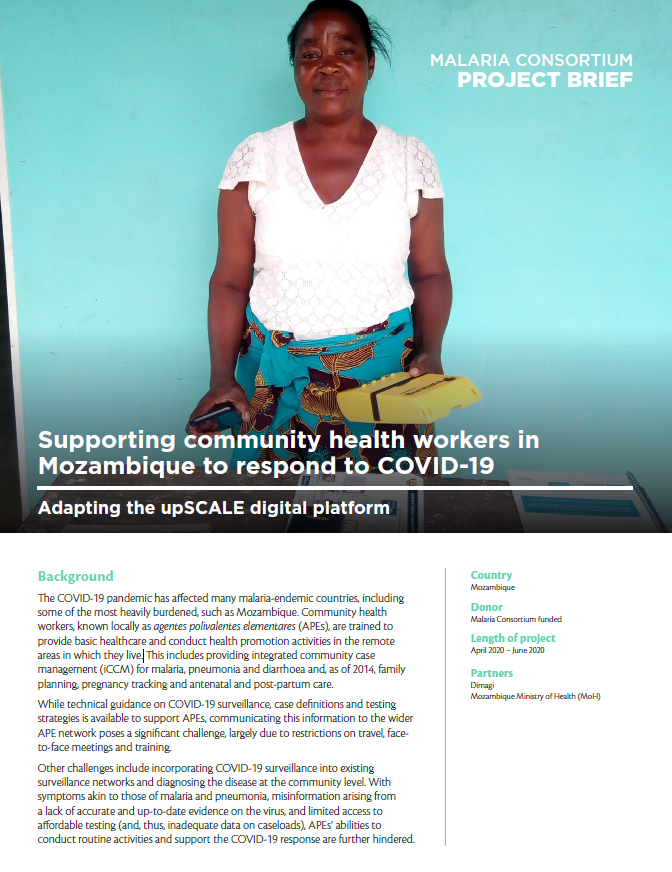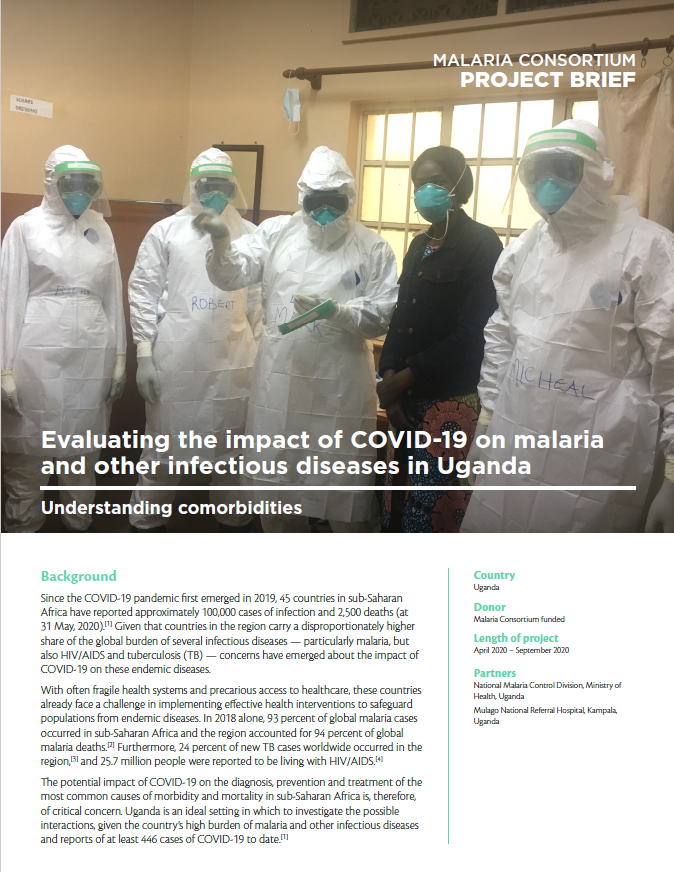MALARIA CONSORTIUM US
GRANTS AND IMPACT
Malaria Consortium US (MC-US) is a registered 501(c)(3) tax-exempt charity and the United States entity of Malaria Consortium. MC-US operates as a sister organization to Malaria Consortium, sharing the same mission to save lives and improve health in Africa and Asia, through evidence-based programs that combat targeted diseases and promote universal health coverage.
Generous charitable donations from individuals and foundations enable MC-US to award grants to Malaria Consortium's implementing countries, to help reduce the burden of malaria and other treatable and preventable diseases in Africa and Asia. You can read more about the projects that we fund below.
Grants are awarded to Malaria Consortium projects worldwide based on where they can have the greatest impact. Grant applications for implementation and research projects, from training community health workers and securing essential medicines to pioneering research on malaria and COVID-19, are aligned with Malaria Consortium’s 2021-2025 strategy and seek solutions to global health challenges consistent with our mission.
Grants may be restricted to a specific intervention, including Malaria Consortium’s seasonal malaria chemoprevention (SMC) program, or used where the need is deemed greatest. Grants are evaluated and awarded bi-annually by Malaria Consortium US Board of Directors.
AWARDED GRANTS
Since 2019, MC-US has awarded eight grants for projects in six countries in Africa and Asia totaling $2,268,949.
Two grants were awarded to support Malaria Consortium’s SMC program in Burkina Faso and Nigeria, and six unrestricted grants were awarded to support Malaria Consortium projects in Mozambique, South Sudan, Uganda and Cambodia.
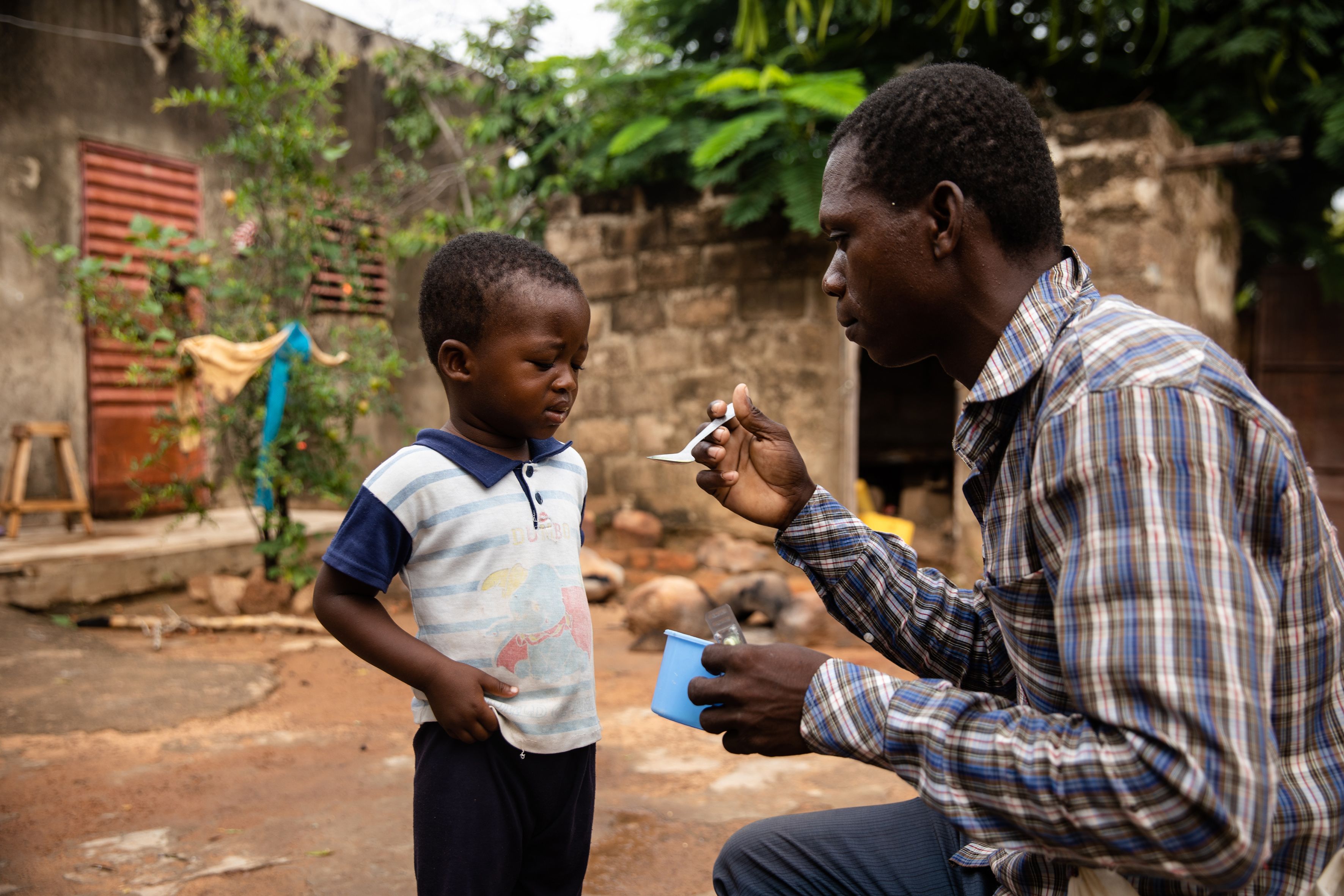
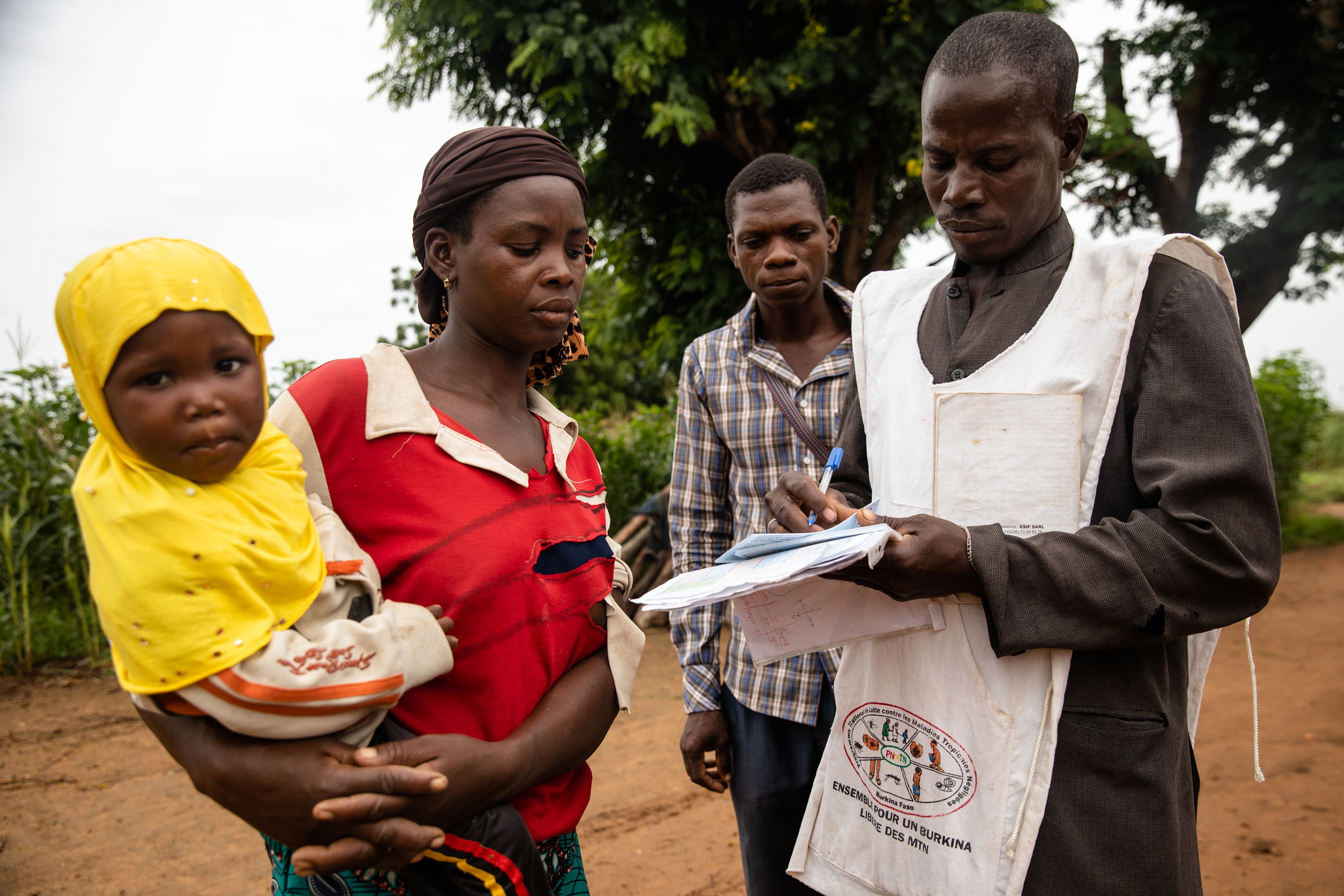
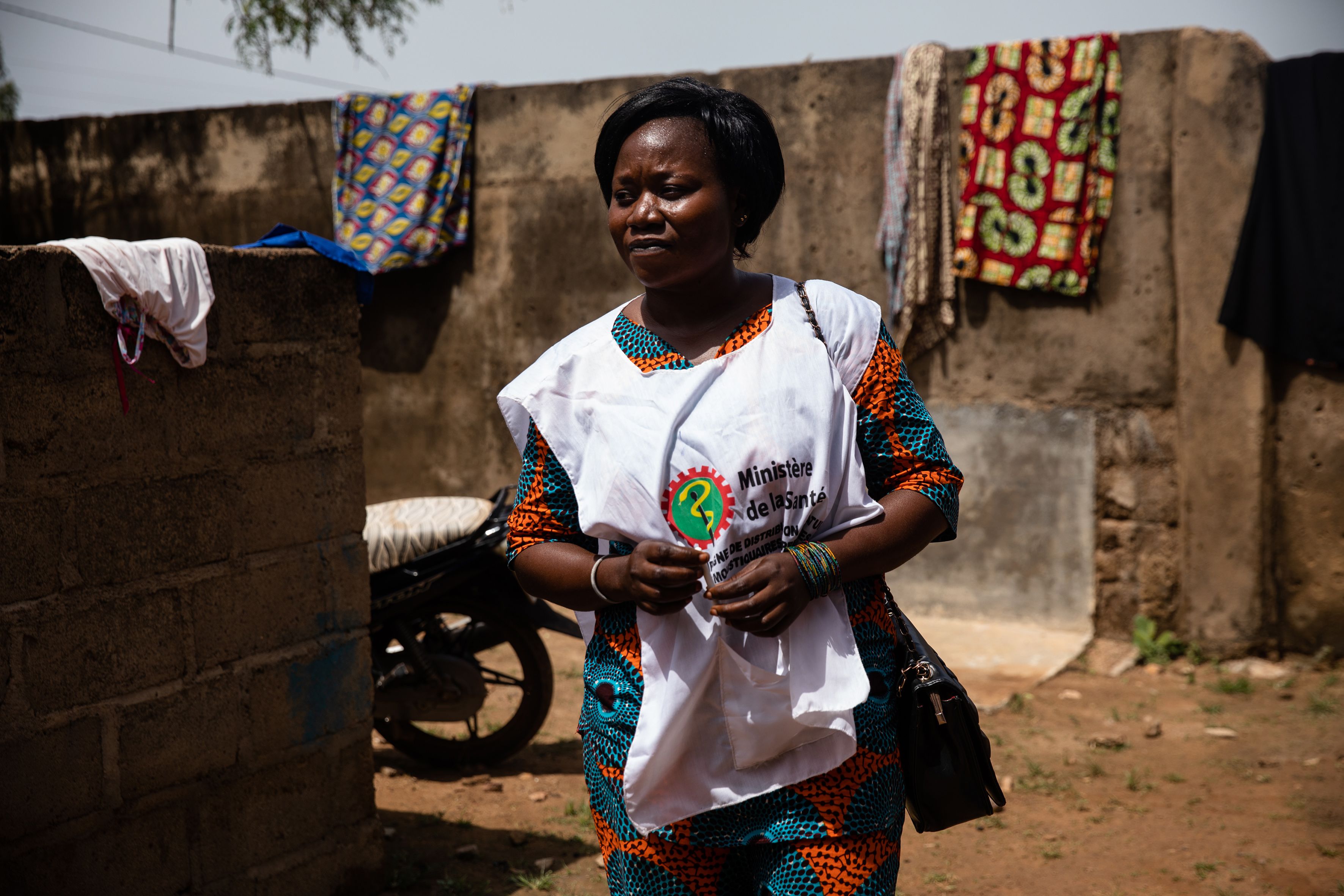
Country: Burkina Faso
Project: Extending SMC to children in urban areas
Year: 2019
Grant Amount: $250,000
Activities
In 2019, a grant of $250,000 was awarded to Malaria Consortium’s SMC program in Burkina Faso, following a request for support from the National Malaria Control Program (Programme national de Lutte contre le Paludisme) to support SMC implementation in five urban districts in Ouagadougou.
SMC is a treatment course of antimalarial medicines that prevent malaria in children under five (3-59 months) during the rainy season, when cases of malaria are highest. This was the first time SMC was implemented in urban areas in Burkina Faso and enabled the national SMC program to reach 100 percent of health districts in the country.
The grant was used to support all four cycles of the SMC campaign in the five urban districts, including supporting district health authorities and communities in planning, coordinating, and implementing SMC, and training and supervision of the community SMC distributors, National Medical Store fees and a coverage survey following third monthly cycle.
Impact
The grant supported the delivery of SMC for approximately 60,000 children under five. Hear about the impact of the SMC campaign from a community health worker in Burkina Faso.
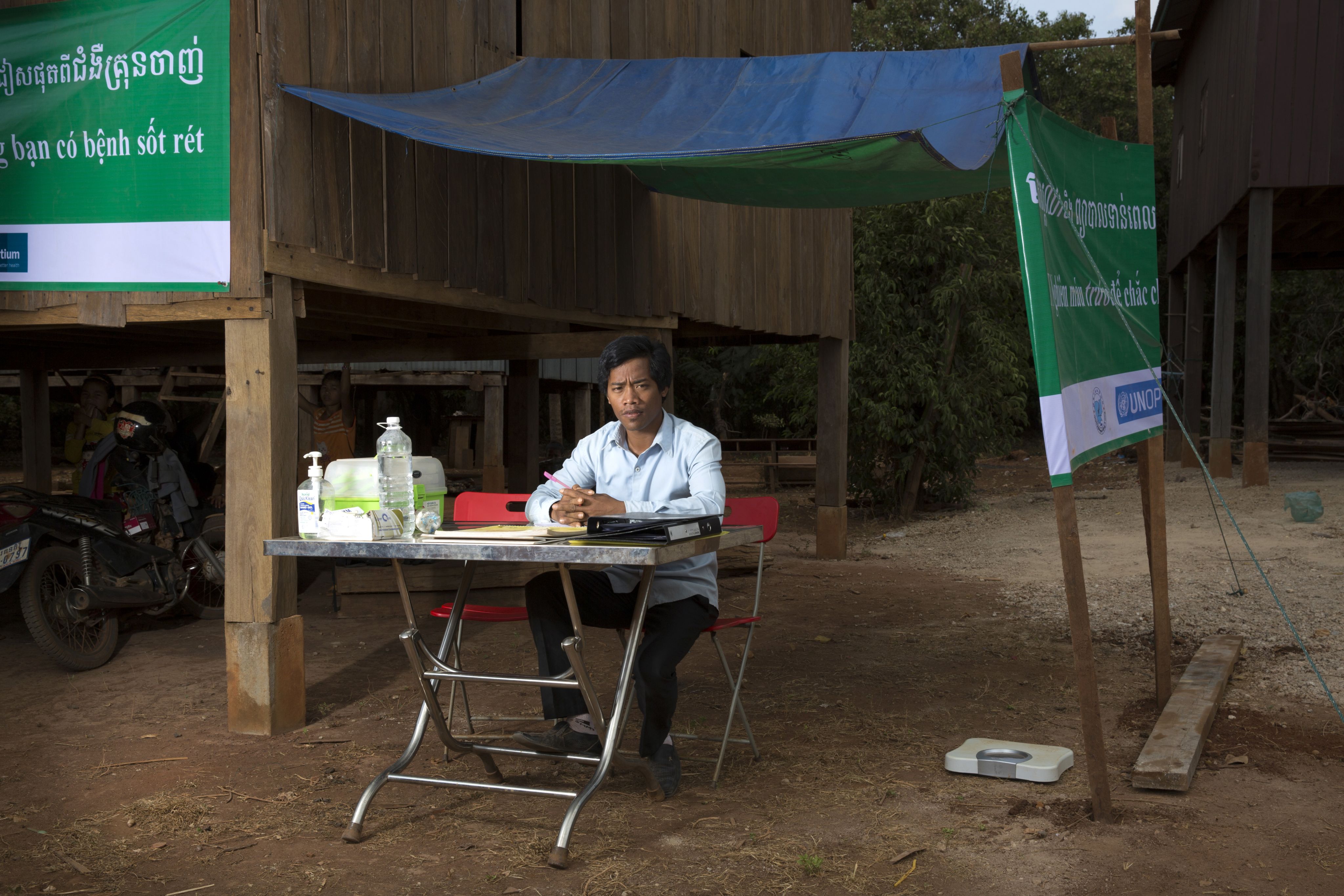
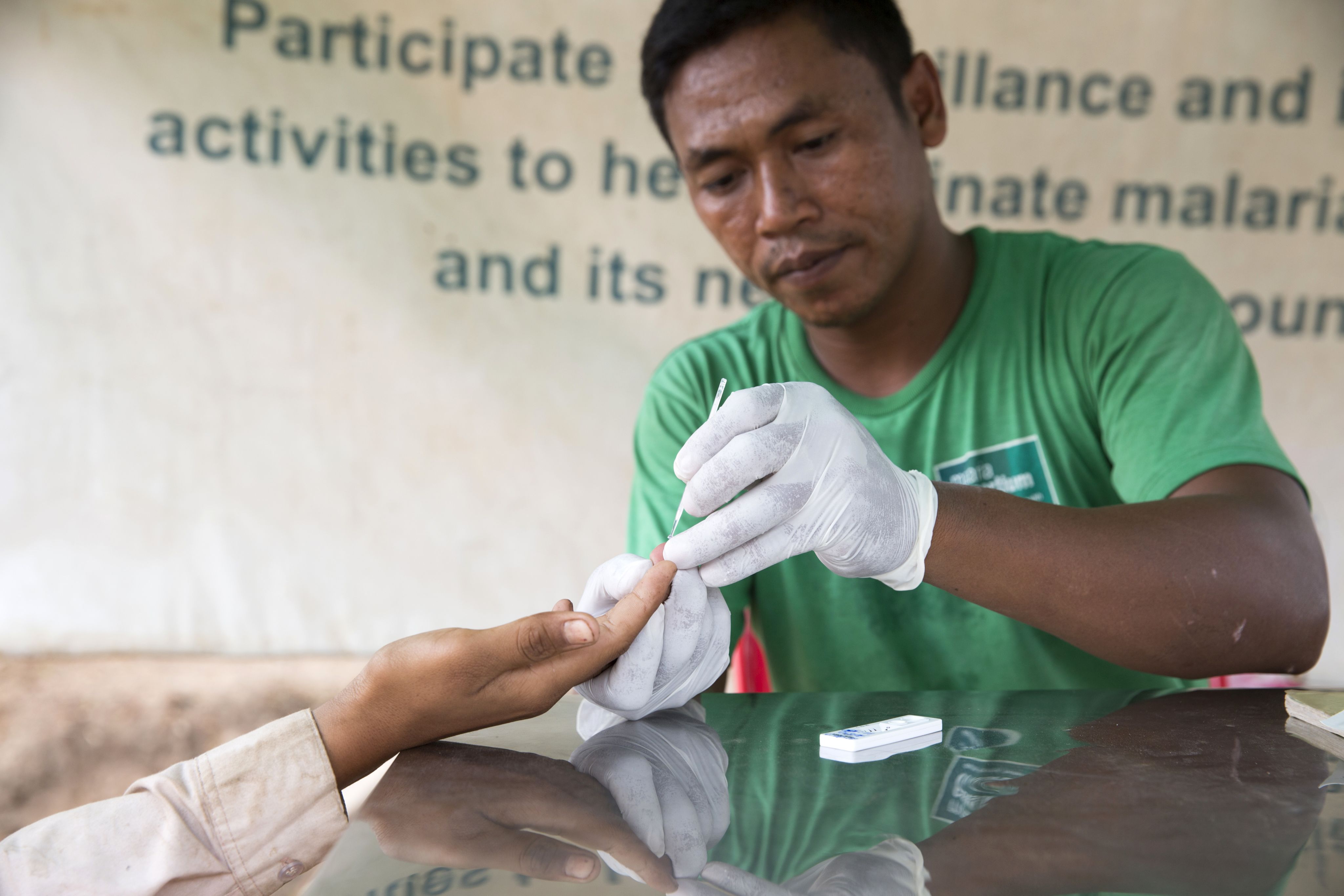
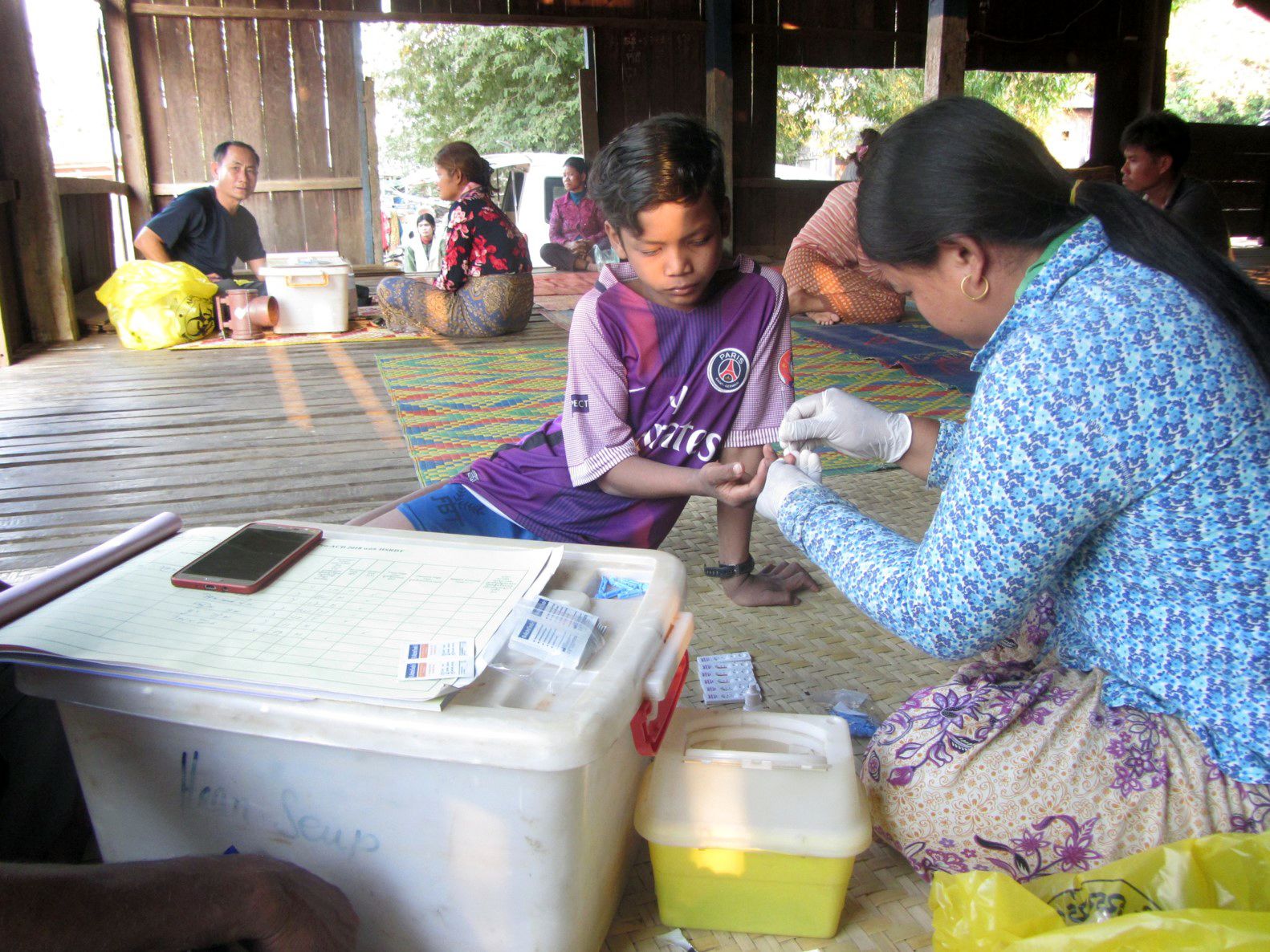
Country: Cambodia
Project: Strengthening case detection and malaria elimination efforts
Year: 2019
Grant Amount: $100,000
Activities
In 2019, an unrestricted grant of $100,000 awarded to the Accelerated Malaria Elimination project aimed to improve health outcomes for an estimated 24,000 people in northeastern Cambodia in the Preah Vihear and Stung Treng Provinces. The grant contributed to maintaining Cambodia’s malaria pre-elimination efforts by countering the spread of multidrug resistant P. falciparum malaria among residents, local forest goers, plantation workers and migrants who were most at risk of malaria by:
- Strengthening passive case detection of two types of malaria (P. falciparum and P. vivax) by training and supporting Village Malaria Workers (VMW) to assess the rate of malaria testing at health centers and ensuring there were no stock outs of test kits or treatments.
- Strengthening community-based pro-active and re-active case detection of P. falciparum and P. vivax malaria through a network of villagers and mobile health workers to screen and appropriately treat those in the targeted populations, as well as complete case investigations for those who test positive for P. falciparum.
- Ensuring full coverage of bed nets, especially among mobile and migrant populations.
Impact
Village malaria workers and health workers tested 12,400 people through passive and active case detection and as a result the number of positive malaria cases dropped from 73 to 18 by March 2020, preventing the reservoir of malaria cases from growing. In June 2018 the annual recorded malaria parasite incidence for malaria cases per 1,000 population was 1.23, by March 2020 it was reduced to 0.3, this contributed significantly to malaria pre-elimination outcomes in this area of the country.
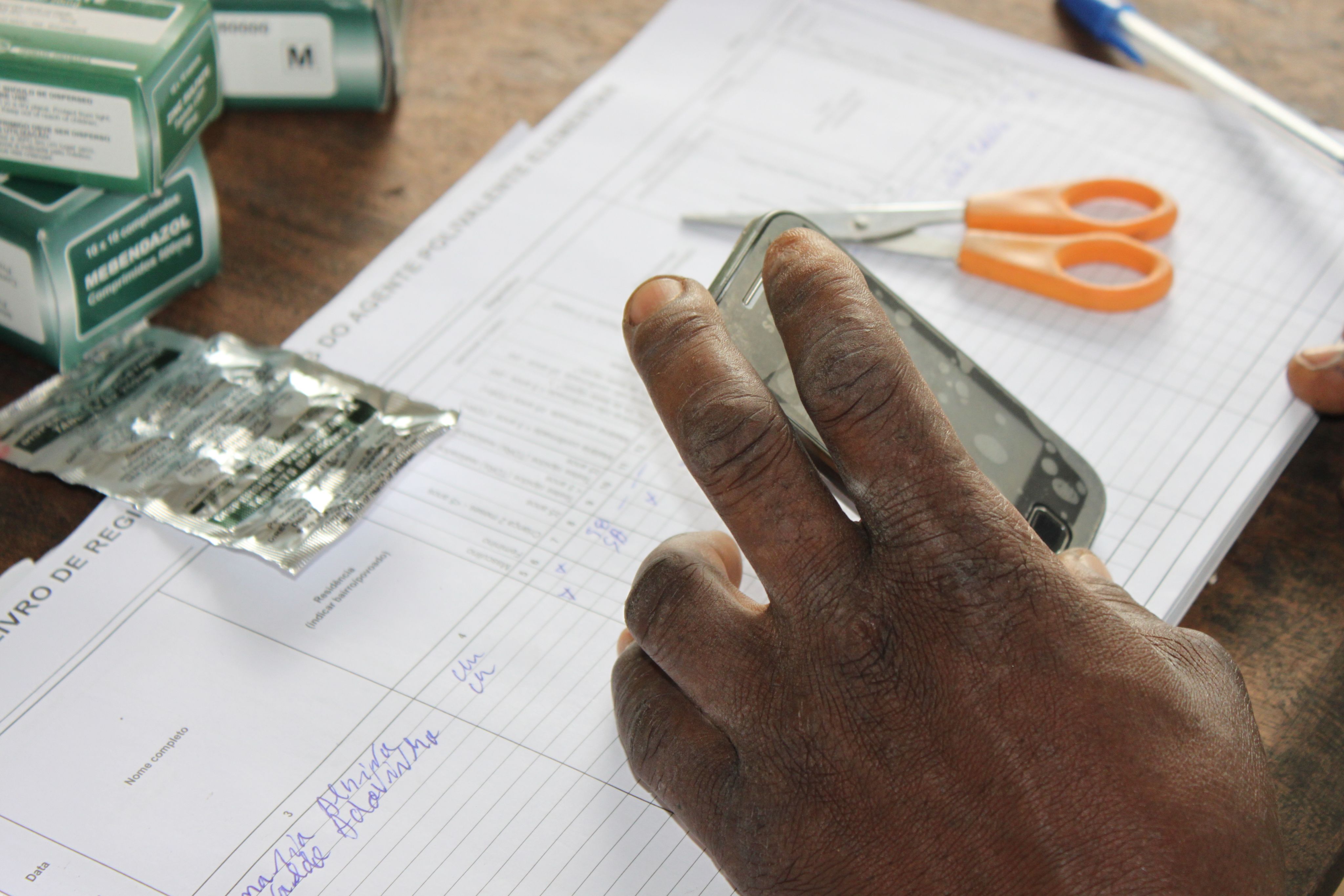
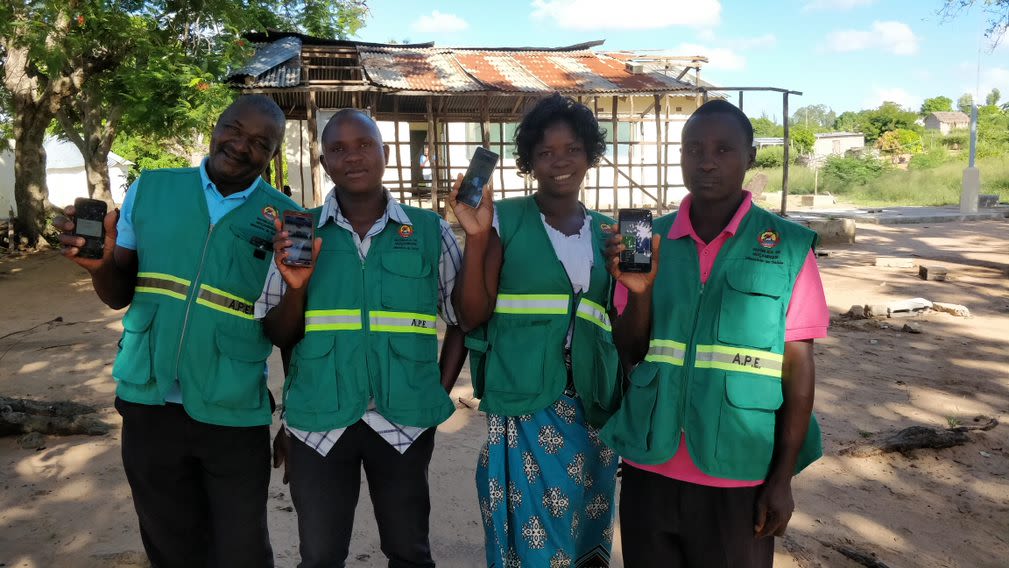
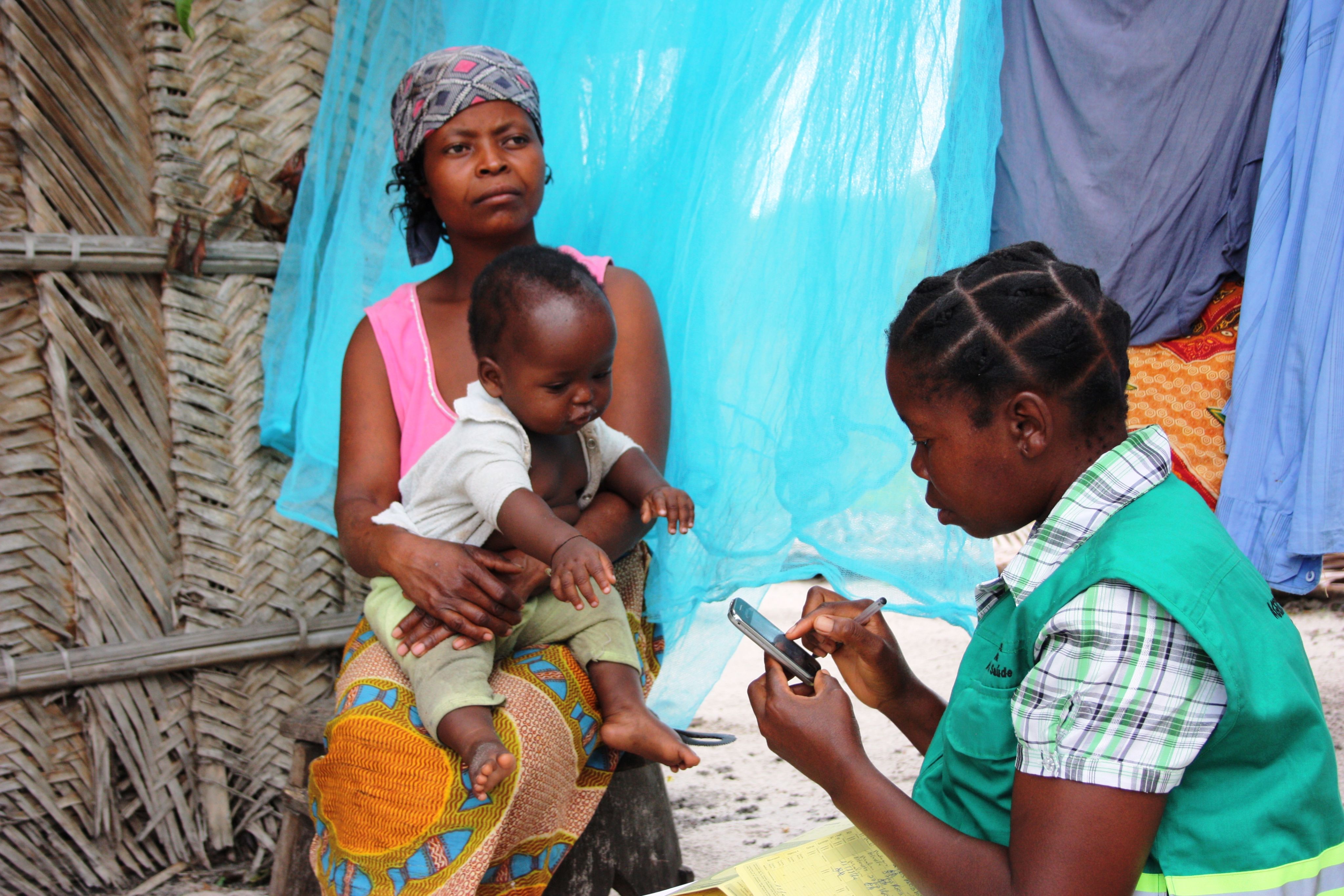
Country: Mozambique
Project: Building digital health capacity
Year: 2019
Grant Amount: $100,000
Activities
In 2019, an unrestricted grant of $100,000 was awarded to help address key bottlenecks to quality health service delivery by community health workers (known as APEs in Mozambique), identified through Malaria Consortium’s upSCALE project, including supply chain management, service delivery and referral, health worker supervision and health information systems. The grant was awarded to help the upSCALE project to address these bottlenecks, by:
- Enhancing the upSCALE platform to include new clinical modules for APEs on conjunctivitis, First Aid, scabies, early childhood development, and a COVID-19 symptom tracker. The supervisor reports were updated to include tracking and referral control, illustration of the types of diseases and how frequently they are reported, and updates to the stock management modules to better monitor and assist APEs. The upSCALE data interoperability with DHIS2 was also updated to integrate new program DHIS2 indicators for these new clinical models.
- Monthly service subscription payments for APEs and supervisor’s mobile airtime and data use was bundled for approximately 2,700 users to enable ongoing platform use.
- Updating the upSCALE implementation manual to provide the Ministry of Health with a guiding document that describes all technical areas (digital, M&E, communications and community health approach) with regards to upSCALE.
- Local companies contracted in each implementation province to repair damaged mobile phones.
- Provinces with low performing mobile workers were identified using monitoring tools and frequent phone-call checkups. Supervision trips were then conducted, with scheduled visits that lasted on average one to two weeks, in order to resolve the different issues mobile workers faced with their phones/app.
Learn more about how upSCALE works from community members
Impact
The upSCALE project was expanded to four new provinces (Maputo, Gaza, Sofala and Nampula) between October 2020 and February 2021. This included procurement of new equipment, creating user services, training, and platform management. The grant helped to train APEs, supervisors and to make the platform revisions and cover the service provider fees. The remainder covered the cost and maintenance of equipment, and data monitoring.
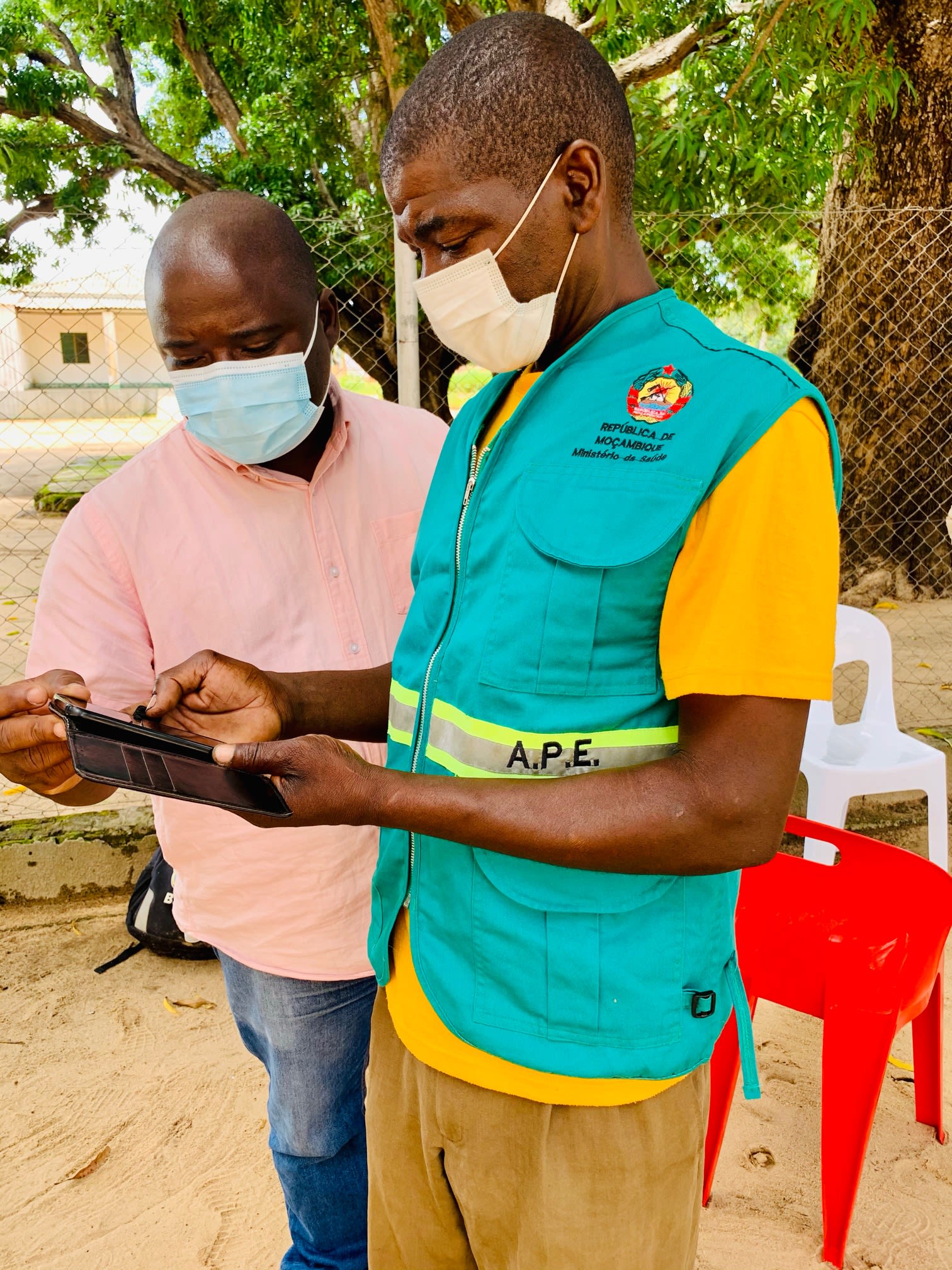
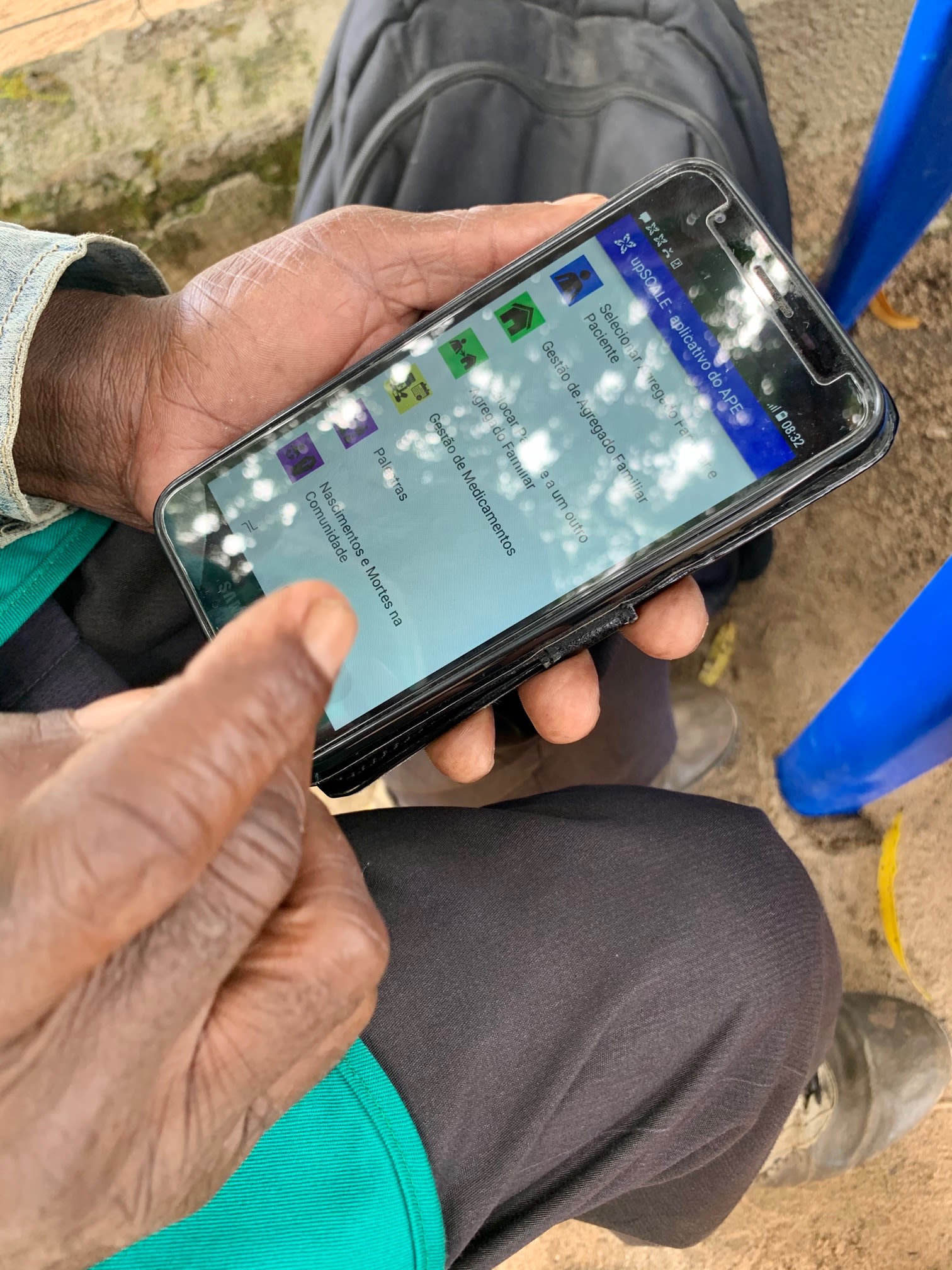
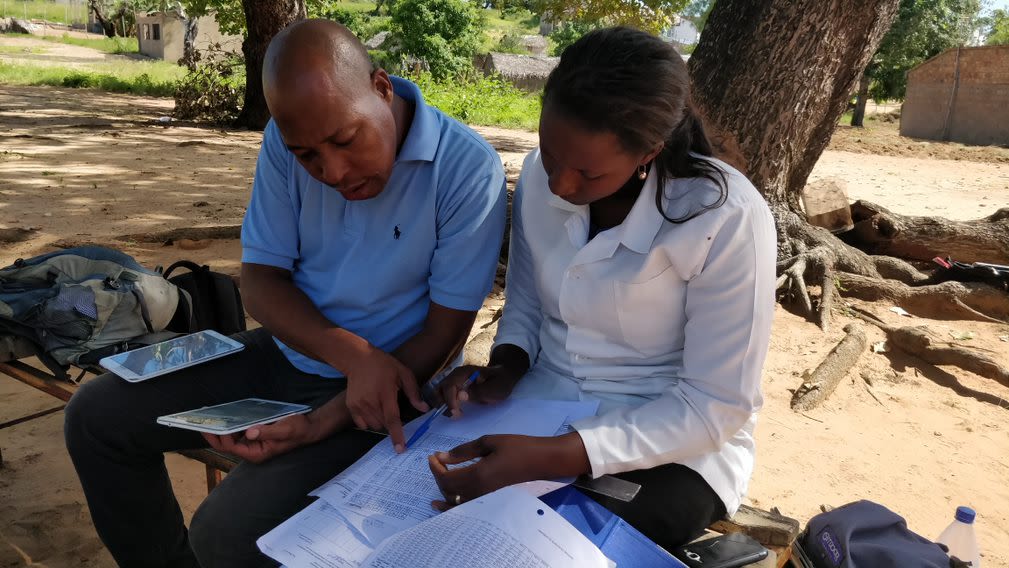
Country: Mozambique
Project: Adapting digital health to COVID-19
Year: 2020
Grant Amount: $100,000
Activities
A grant of $100,000 was awarded to rapidly build on the upSCALE platform and use telemedicine to support the COVID-19 response at community level in Mozambique.
As Mozambique became affected by the COVID-19 pandemic in April 2020, and restrictions to travel for group meetings and training were put in place, the Ministry of Health recognized the need to accurately train APEs remotely on how to prevent transmission of COVID-19 and identify symptoms. They also identified the need to update the upSCALE application to enable APEs to differentiate a diagnosis between COVID-19, malaria and pneumonia.
Regular updates to the digital content with COVID-19 adaptations as new evidence about the virus became available were made to SMS messaging, training modules, stock control and disease surveillance. data at a national level. The new platform was demonstrated and tested with 1,199 health workers and 342 supervisors in three provinces.
Impact
As a result of this grant, upSCALE integrated a diagnostic algorithm for COVID-19 and differential diagnosis for malaria, pneumonia and diarrhoea, delivering COVID-19 disease messaging and awareness materials via the app and SMS texts. The stock management system was updated to include COVID-19 materials such as face masks and gloves and a COVID-19 dashboard for national disease surveillance was developed.
Read more details in the project brief
Read more details in the project brief
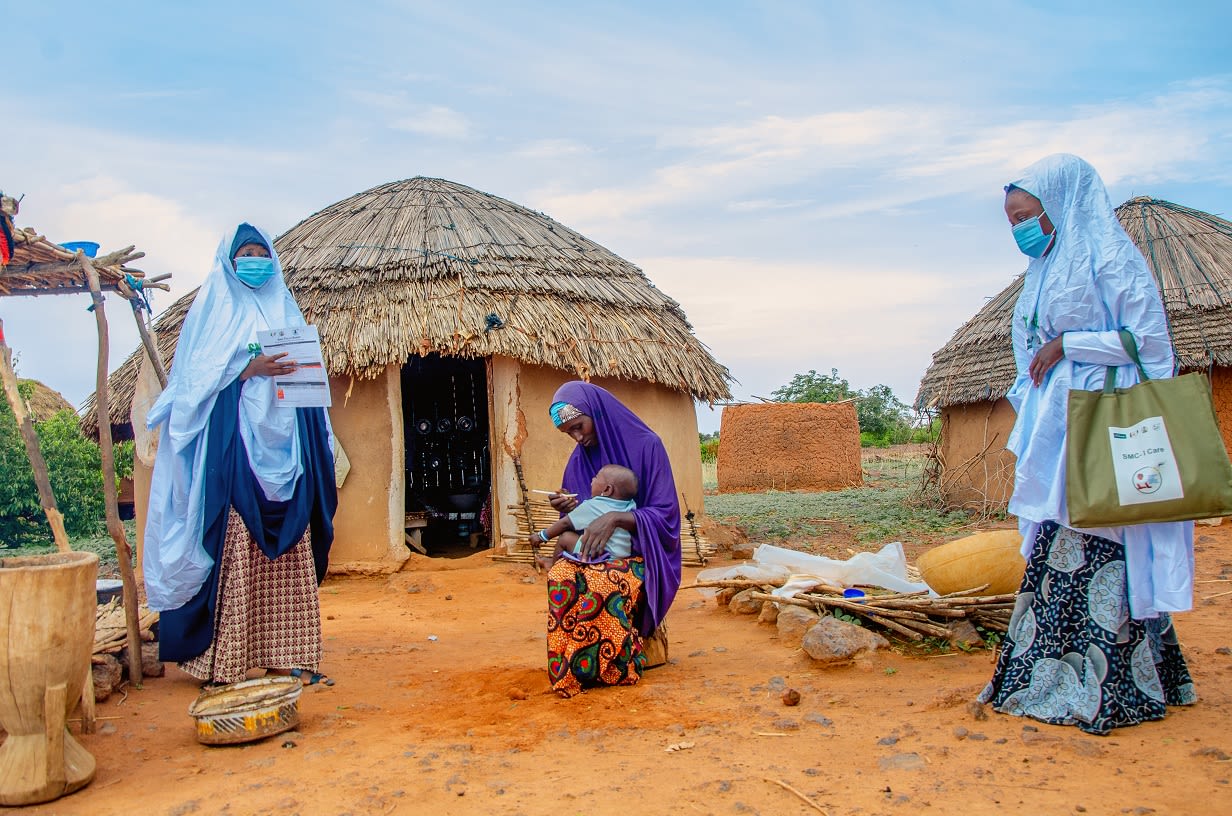
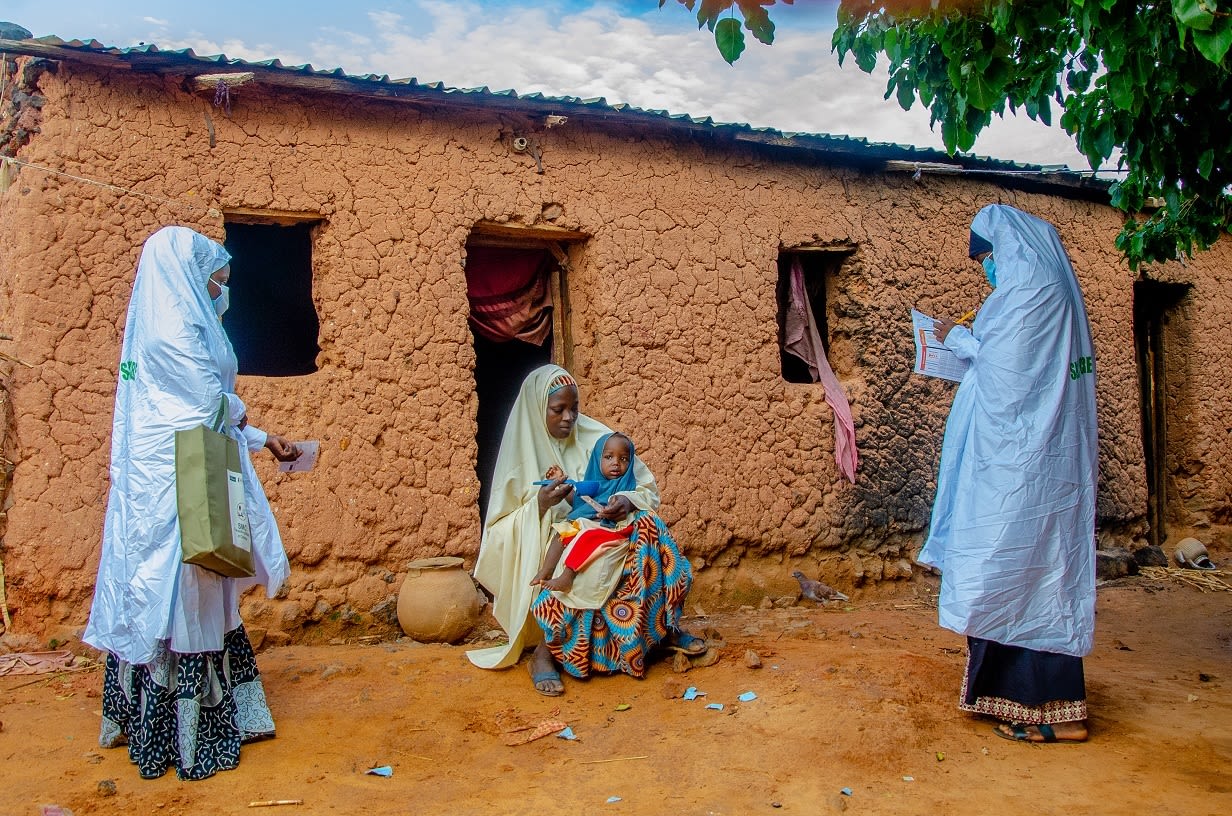
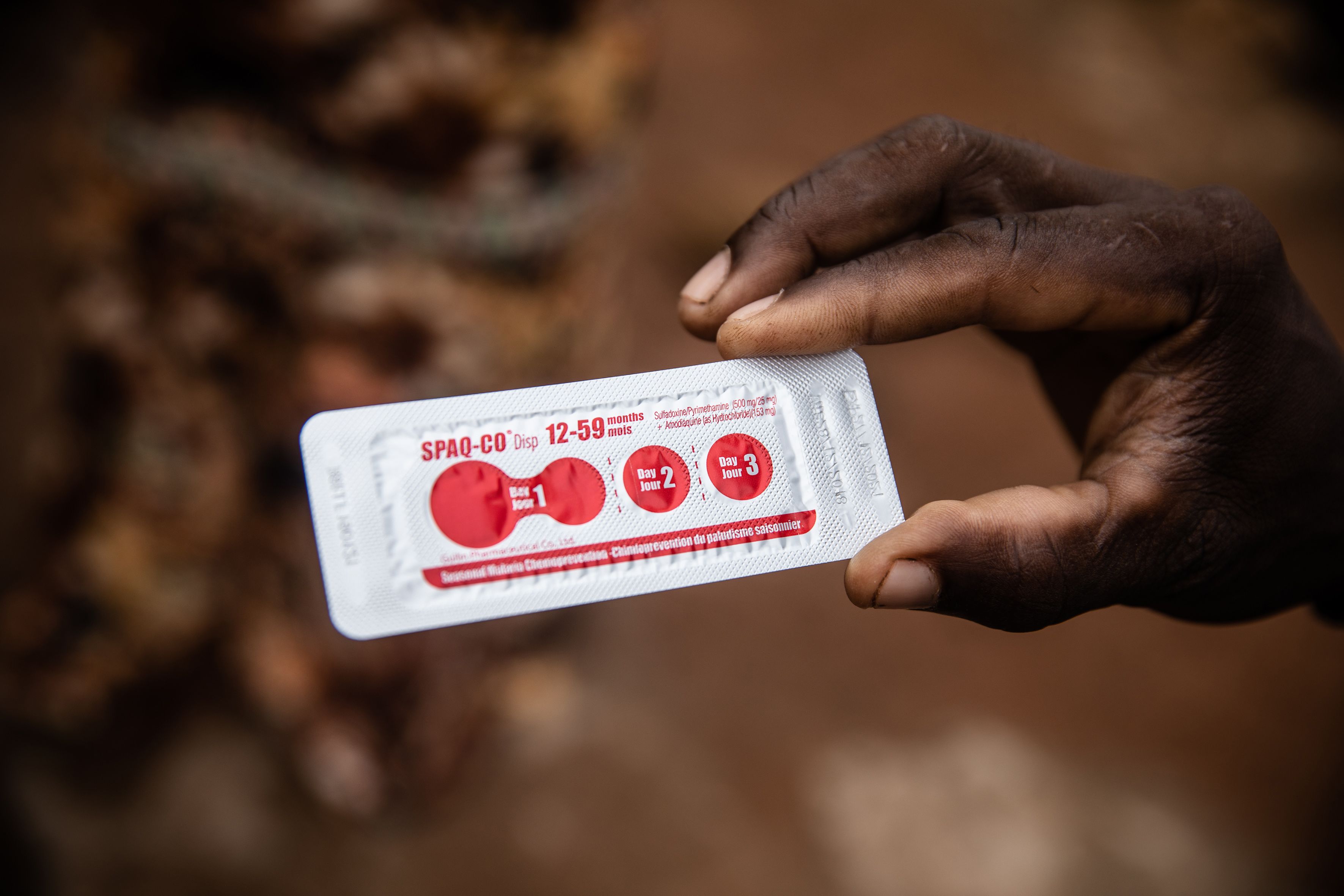
Country: Nigeria
Project: Increasing access to essential medicines for SMC
Year: 2020
Grant Amount: $723,949
Activities
Malaria Consortium’s SMC program was awarded $723,949 to support procurement and coordinate a shipment of quality-assured blister pack doses of SMC medicines (SPAQ), for an estimated 470,000 children in two Nigerian states, Jigawa and Kebbi.
Impact
The grant contributed to successful delivery of SMC between July and November 2020 in Jigawa and Kebbi states including in areas where SMC had not previously been implemented. More than 1.7 million SPAQ medicine blister packs were consumed over the course of the 2020 SMC campaign, reducing malaria infections in close to half a million children under five years-old.
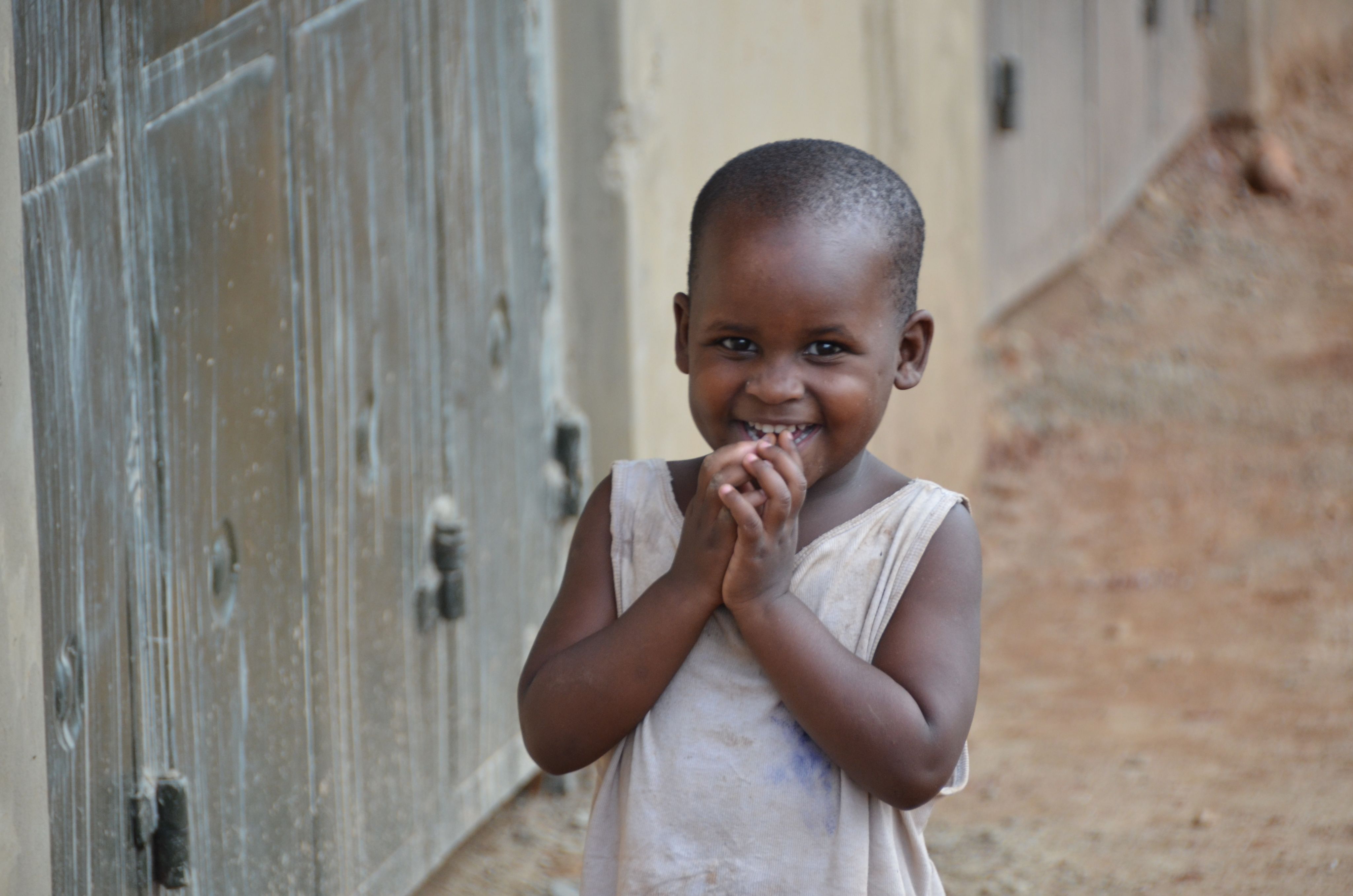
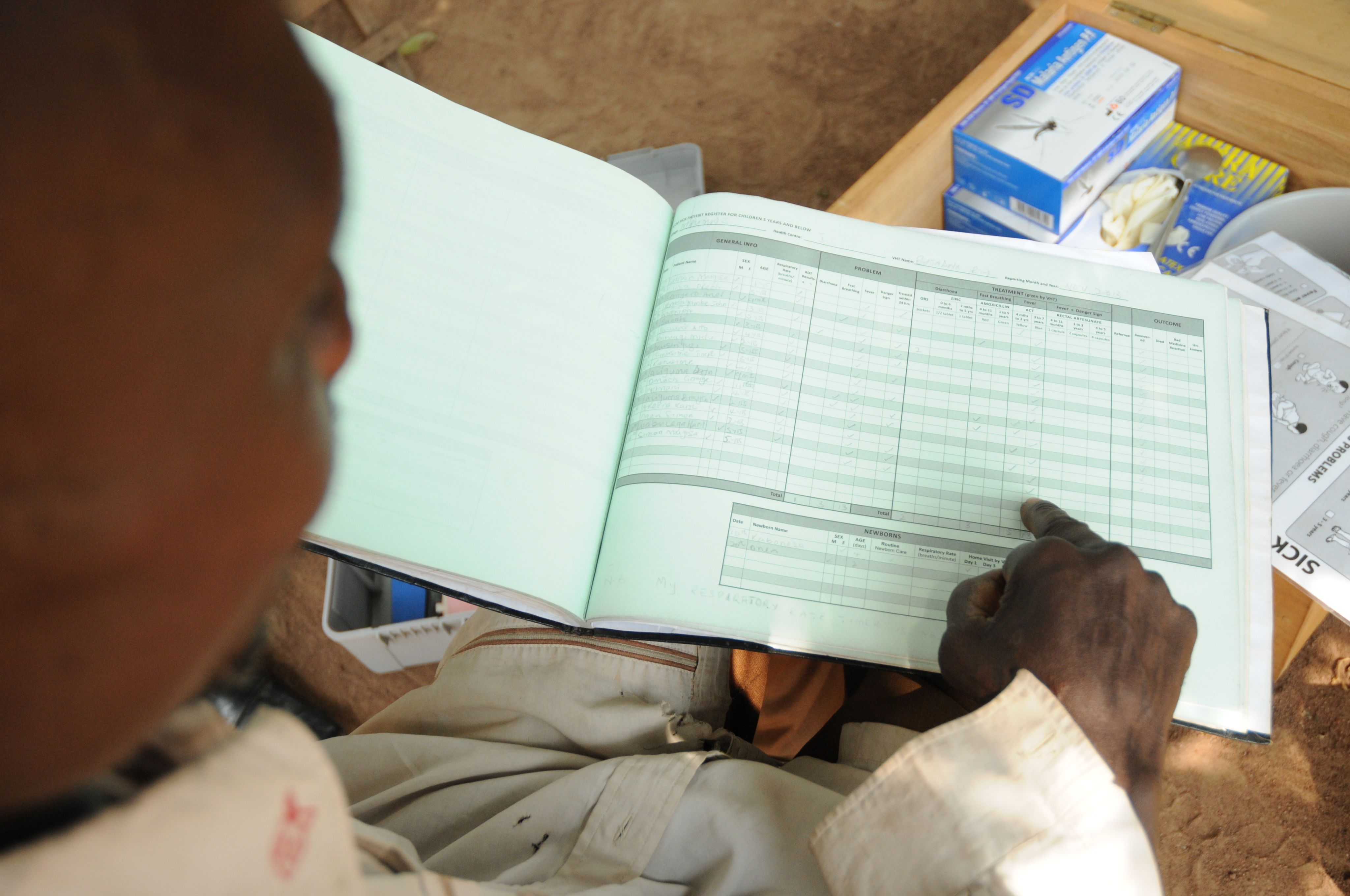
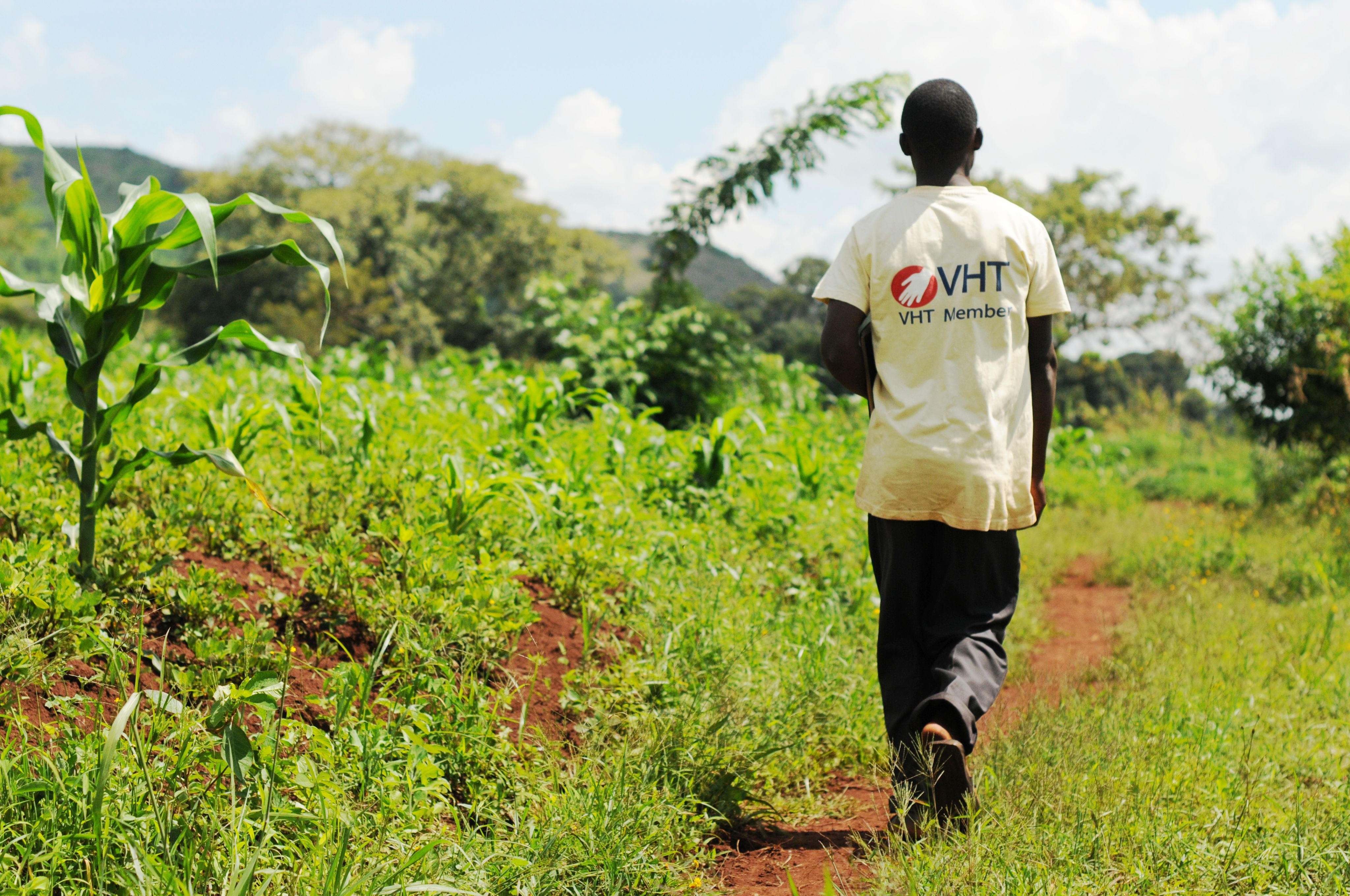
Country: Uganda
Project: Strengthening community case management through digital health solutions
Year: 2020
Grant Amount: $170,000
Activities
$170,000 was awarded to support the integrated community case management (iCCM) program in the central region of Uganda to pilot the upSCALE digital platform to capture community health worker data in the Buikwe district and test if mhealth applications can be used to improve community health worker motivation through mentorship with the expectation that the quality of malaria care would be improved.
This program is ongoing, to date, the development of the upSCALE mobile app has been completed including the diagnostic and treatment modules for malaria, pneumonia, diarrhea and COVID-19. All phones and sim cards for the community health workers have been purchased and a local mobile phone provider has been contracted to provide unlimited cellular data. Trainers are currently being trained how to use the mobile software and the phones are being programed and tested for access and security permissions with the national health surveillance system. The next step will be to train the community health workers and test the program.
Impact
If the program is found to be feasible, effectively improving community health data capture and community health worker motivation and service delivery, it is expected the Ministry of Health will scale it up across the country. This will depend on available funding with continued donor support.
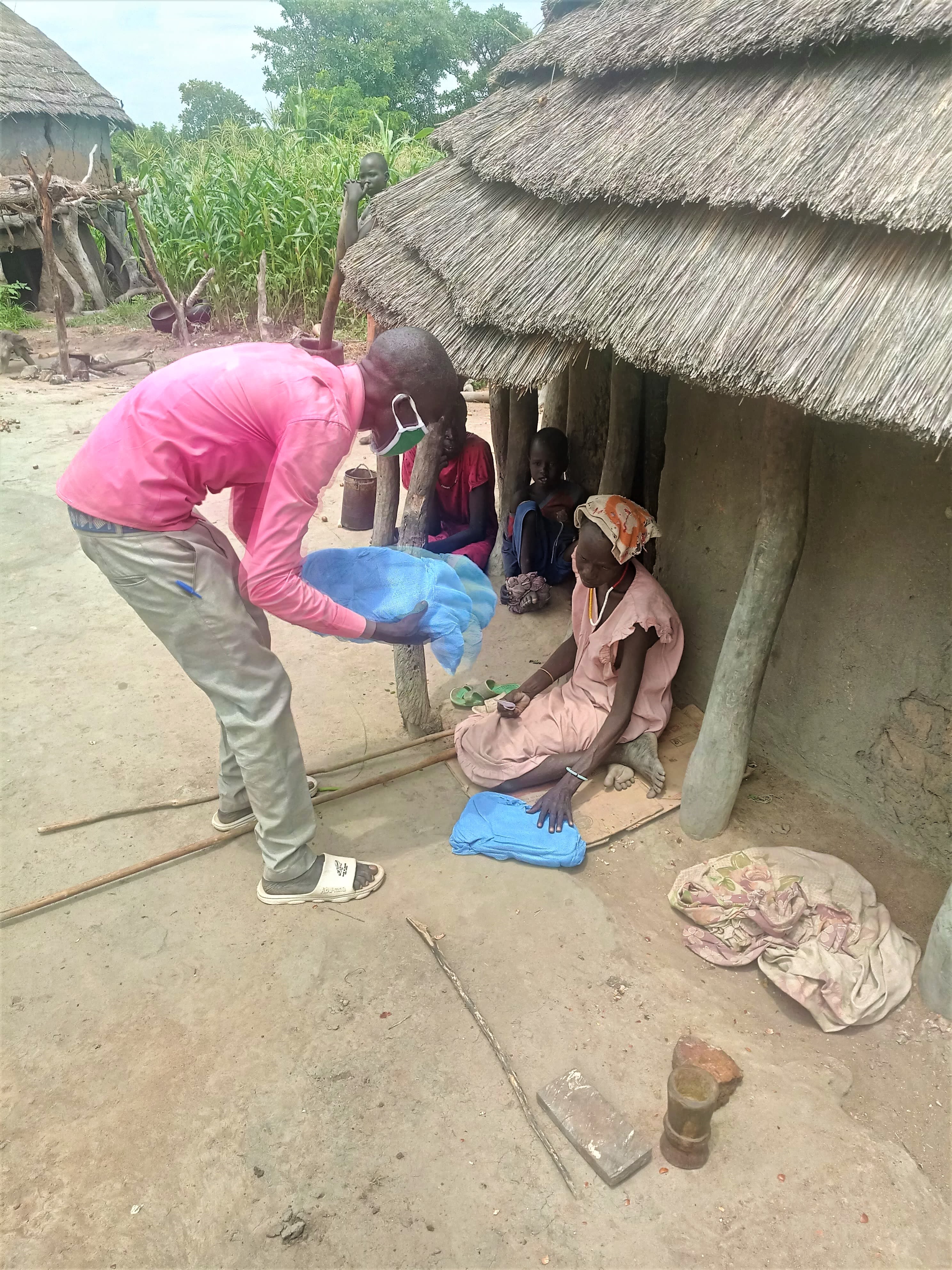
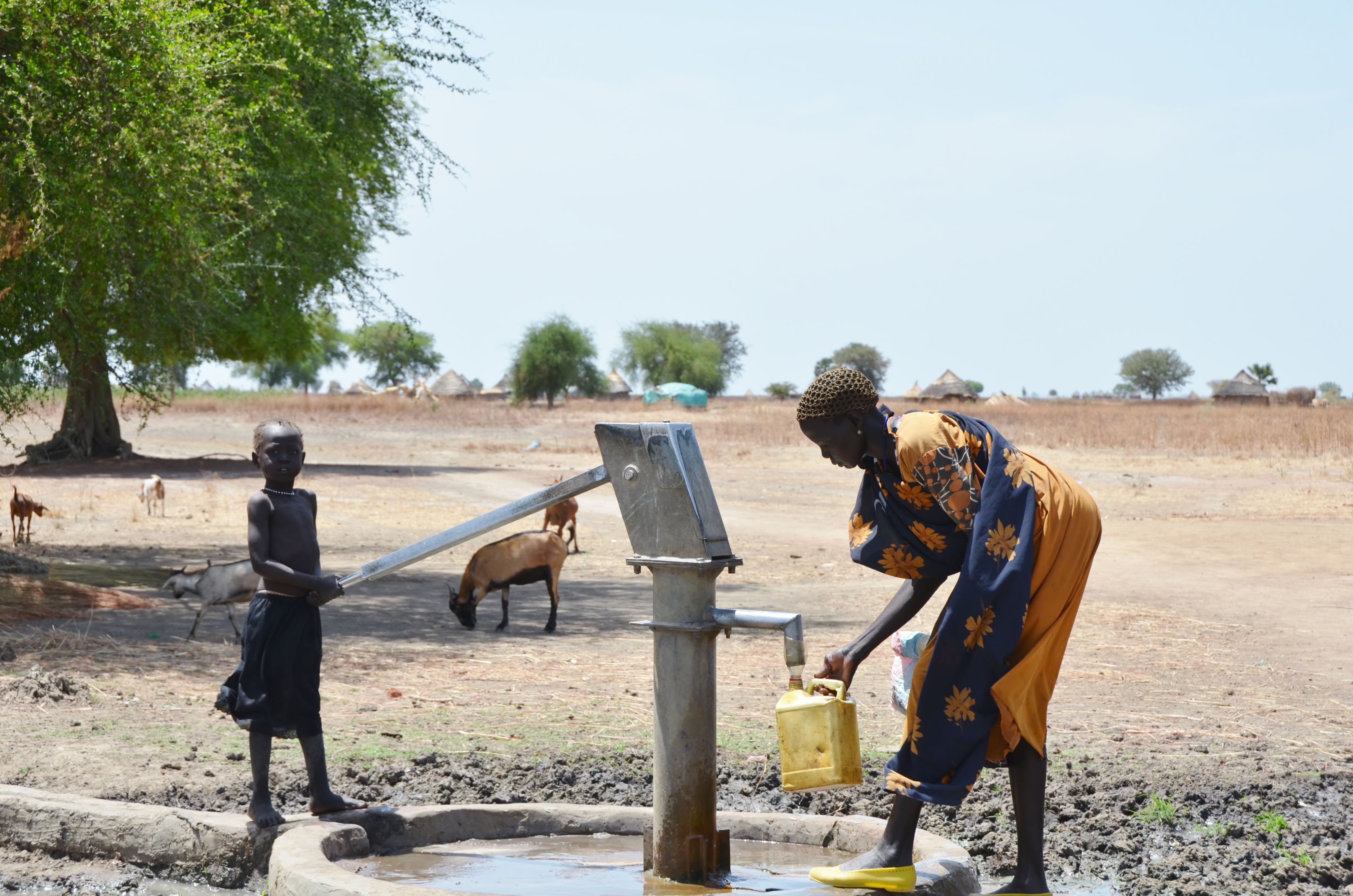
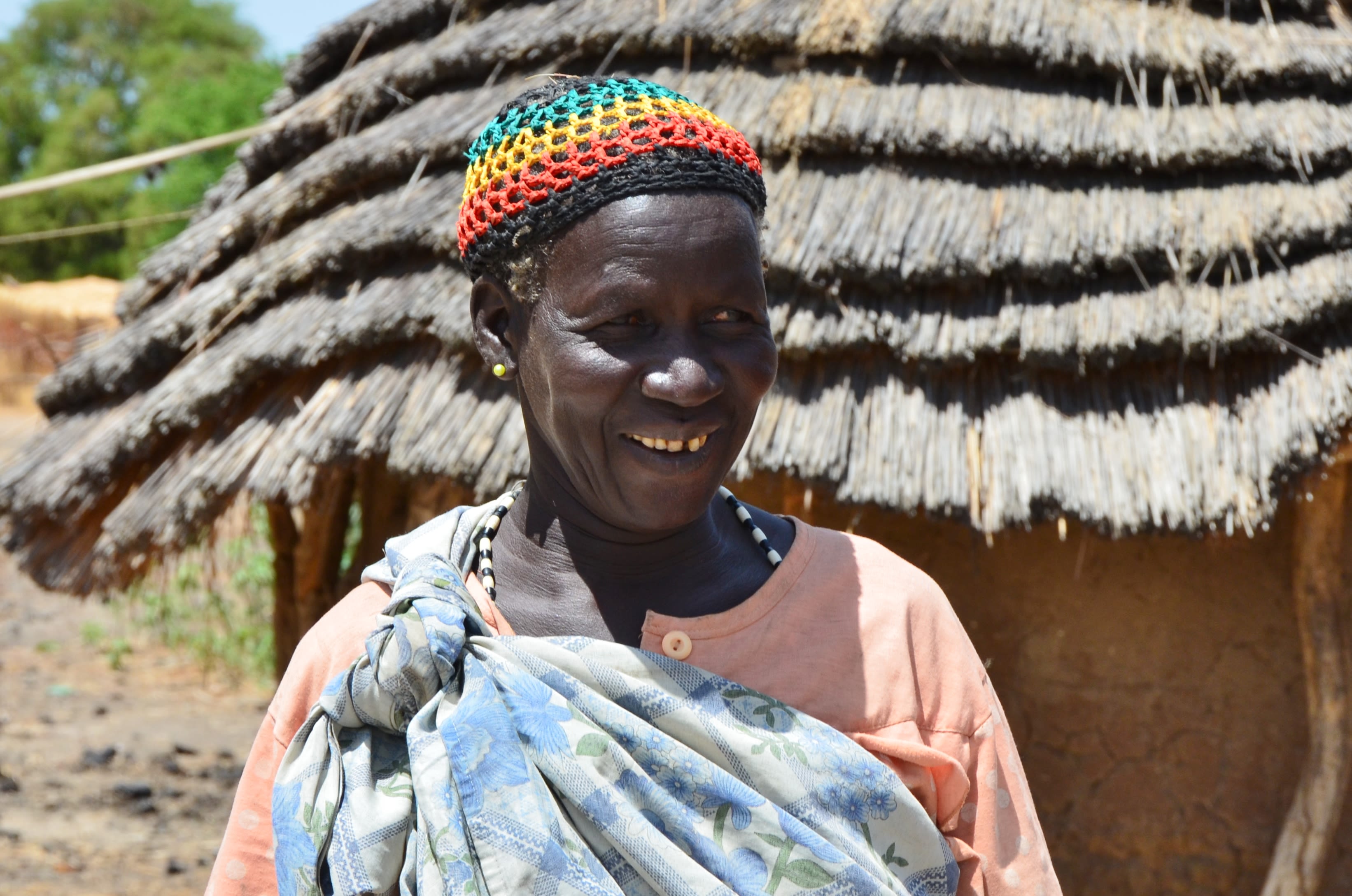
Country: South Sudan
Project: Supporting Community health workers to better manage malaria, pneumonia, diarrhea, malnutrition and immunization
Year: 2020
Grant Amount: $150,000
Activities
A grant of $150,000 was awarded to address a funding gap in South Sudan’s Boma Health Initiative.
The Boma Health Initiative was launched in 2016 by the Government of the Republic of South Sudan to improve the reach of health services in communities and included the delivery of an integrated package of health promotion, disease prevention and selected treatment packages by community health workers to help bridge the gap between health facilities and communities.
Impact
The grant enabled the successful roll out of the Boma Health initiative leading to the recruitment and training of 570 Boma Health Initiative community health workers on management of child health in the community which included malaria, pneumonia, diarrhea, malnutrition and immunization. These community health workers were able to reach an estimated 1.2 million children in three counties of Warrap State (Gogrial East, West and Twic) and two counties of Upper Nile state (Nasir and Ulang).
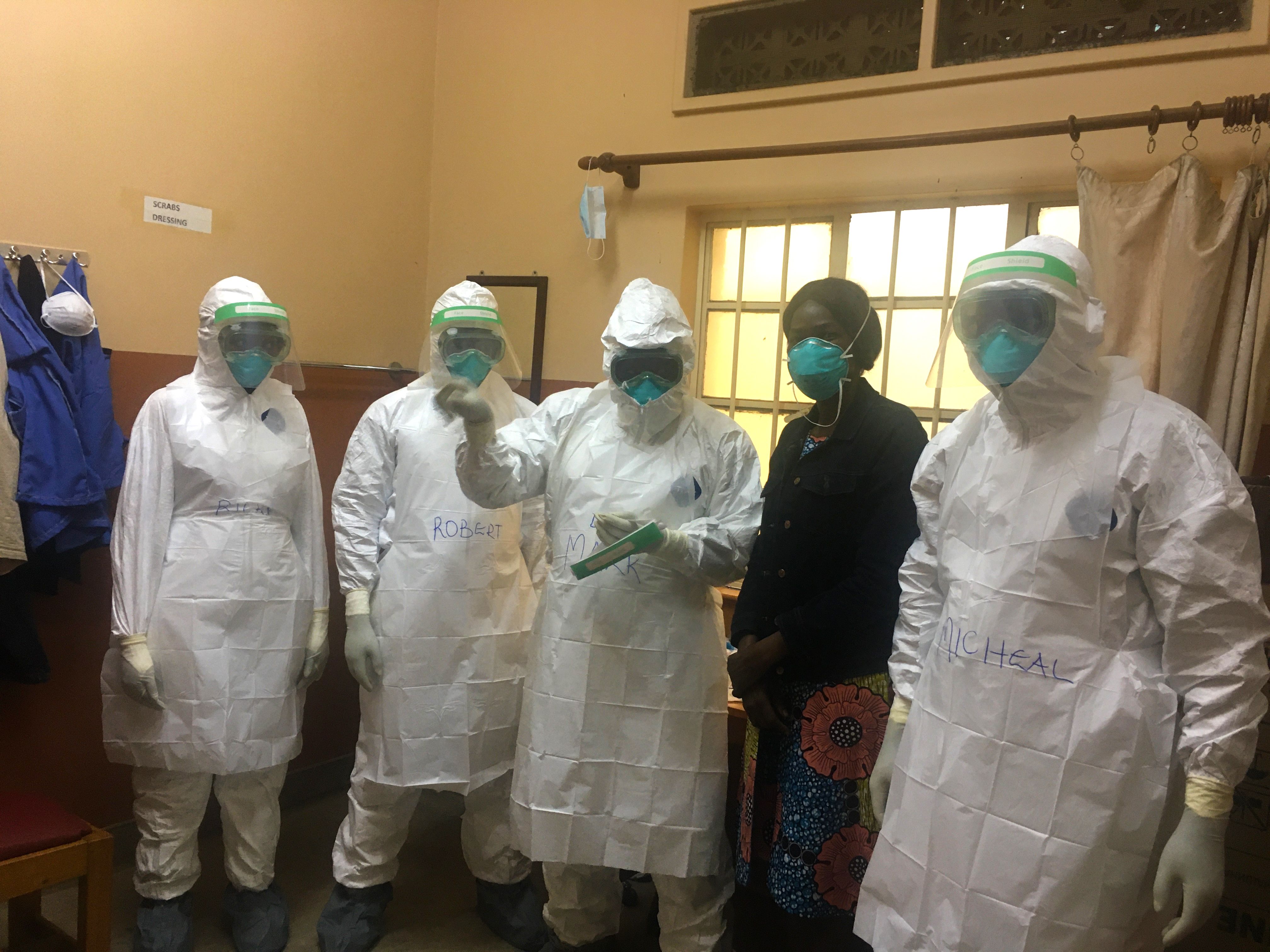
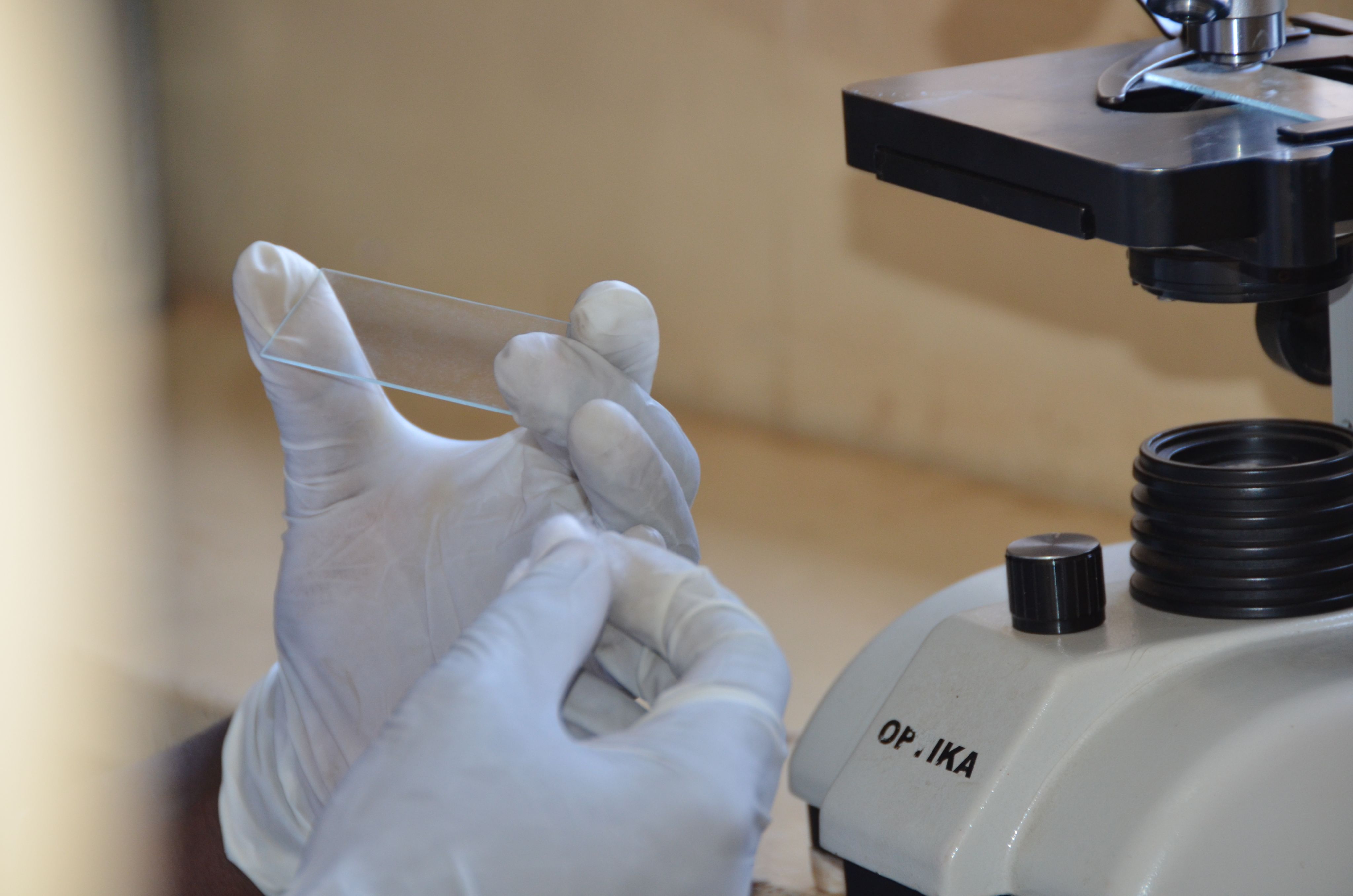
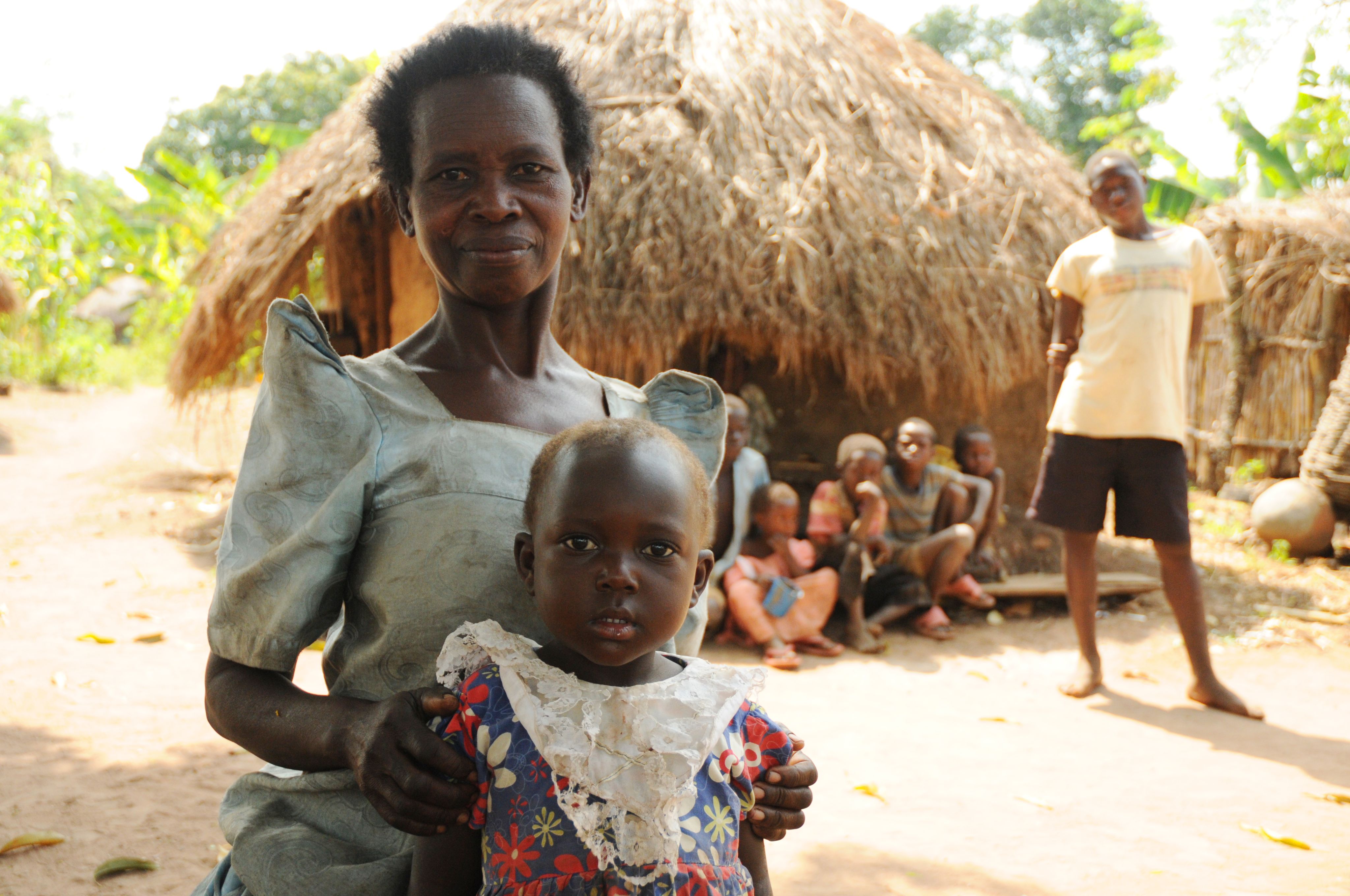
Country: Uganda
Project: Groundbreaking research on COVID-19 and malaria co-infection
Year: 2020-21
Grant Amount: $175,000
Activities
$175,000 was awarded to Malaria Consortium’s research team in Uganda to conduct research to understand interactions and clinical consequences of co-infection of COVID-19 and malaria. The study was conducted from April to October 2020 at COVID-19 treatment centers in eight tertiary hospitals in Uganda.
Results from this ground-breaking research, were published in The Lancet Microbe journal and learnings from the process of conducting the research were published in the European Journal of Clinical Medicine and presented to multiple stakeholders in Uganda including the Ministry of Health, USAID, and CDC, as well as to the COVID-19 and Malaria working groups at the World Health Organization, to the National Institutes of Health, the Gates Foundation and the University of California San Francisco.
Read the project brief to find out more
Read the project brief to find out more
Impact
These preliminary observations enhance our understanding of potential clinical interactions between SARS-CoV-2 and malaria infection. Given the prevalence of malaria in sub-Saharan Africa, understanding the interactions and what this means for patient outcomes is of huge importance, and could help promote integrated approaches to investigations and management.
REGISTRATION AND TAX STATUS
MC-US was incorporated on March 12, 2009, in the Commonwealth of Virginia and as of 2021 remains in good standing. MC-US received 501(c)(3) public charity tax-exempt status with the IRS in April 2011 and was assigned the EIN 98-0627052. MC-US is also authorized by the State of North Carolina to transact business, where the office of MC-US is currently located in Raleigh, NC.
From 2011 through 2018 MC-US filed Form 990-N e-postcards with the IRS as required for annual charitable donations of less than $50,000. Since 2019, our revenue has grown above $50,000 and IRS Form 990E has been filed annually. These IRS files can be found by searching for Malaria Consortium US, Inc. or with our EIN in the IRS tax-exempt organization database or on our website.
